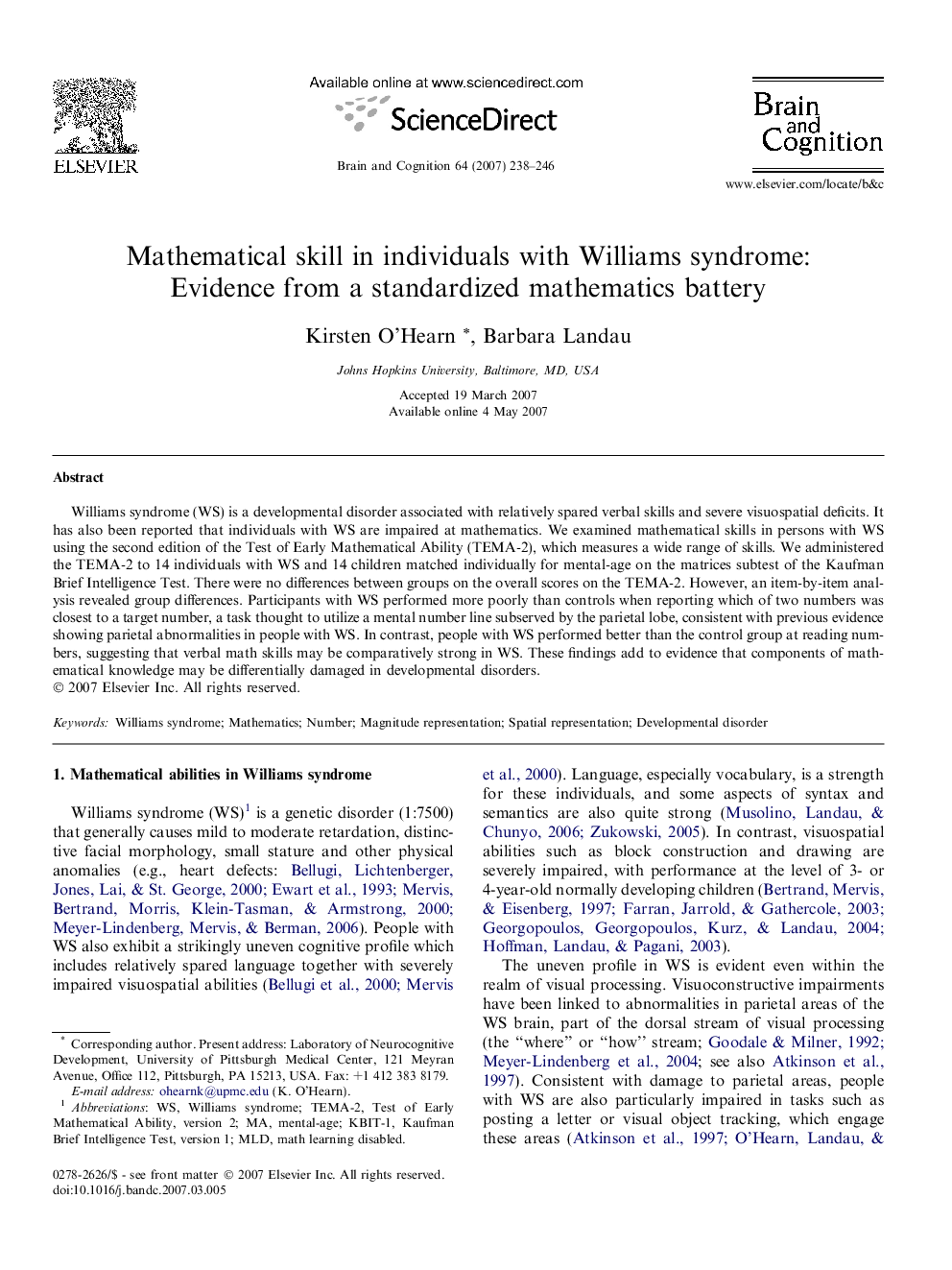| Article ID | Journal | Published Year | Pages | File Type |
|---|---|---|---|---|
| 925025 | Brain and Cognition | 2007 | 9 Pages |
Williams syndrome (WS) is a developmental disorder associated with relatively spared verbal skills and severe visuospatial deficits. It has also been reported that individuals with WS are impaired at mathematics. We examined mathematical skills in persons with WS using the second edition of the Test of Early Mathematical Ability (TEMA-2), which measures a wide range of skills. We administered the TEMA-2 to 14 individuals with WS and 14 children matched individually for mental-age on the matrices subtest of the Kaufman Brief Intelligence Test. There were no differences between groups on the overall scores on the TEMA-2. However, an item-by-item analysis revealed group differences. Participants with WS performed more poorly than controls when reporting which of two numbers was closest to a target number, a task thought to utilize a mental number line subserved by the parietal lobe, consistent with previous evidence showing parietal abnormalities in people with WS. In contrast, people with WS performed better than the control group at reading numbers, suggesting that verbal math skills may be comparatively strong in WS. These findings add to evidence that components of mathematical knowledge may be differentially damaged in developmental disorders.
